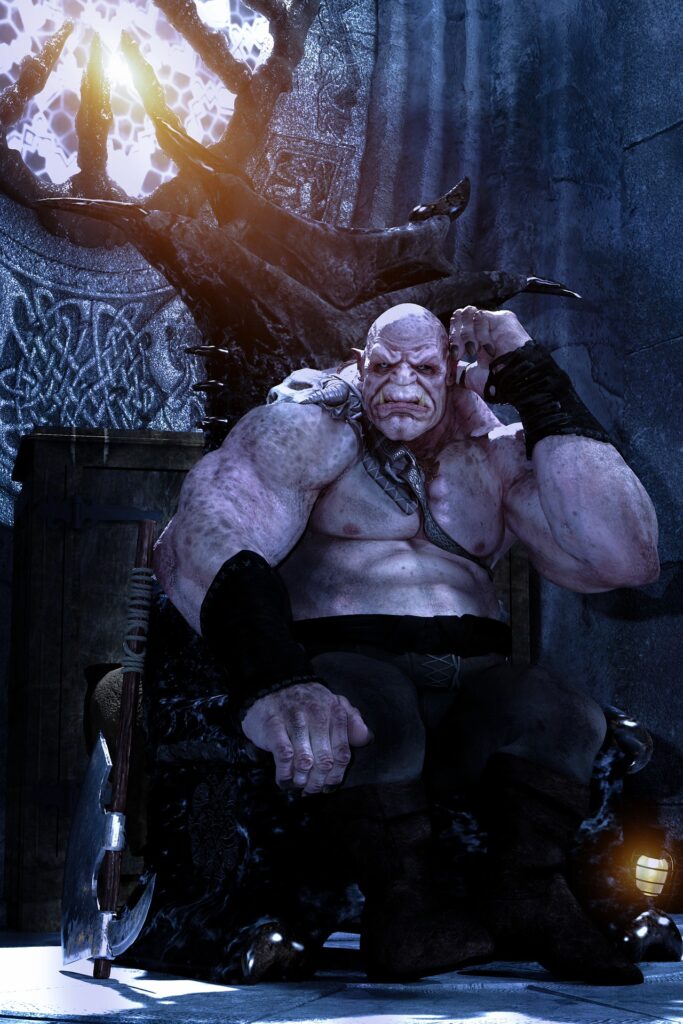I’ve got a special treat for you today. This Brave Writer submitted their first page for critique. Check it out. My comments will follow.
Lucky Lynx
Eduardo’s gun gleamed in the evening light as he tucked it into his shoulder holster.
“This guy Luckee ain’t a threat’,” he scoffed, as he pulled his jacket closer. “He’ll fold like the rest, we just gotta push him.”
Carlos shook his head. He didn’t take his hands off the wheel as the battered Ford Bronco jounced over the pothole-ridden street. “You know Hector Flores, ran with Familia Michoacana?”
“What if I do?”
“He gone. Double-crossed Luckee in a deal. Next day, his bank accounts disappeared. Two days later, cops pick him up for murder. He’s up for fifteen at Riker’s.”
That made Eduardo sit up. The seat’s rusty springs made a creak.
“Hector never offed no one!”
“That’s right.” Carlos turned the Bronco down a side street. “Luckee hacked into the cops’ database. Swapped evidence with a gang-banger, pinned it all on Hector.”
“You’re messing with me, primo. This nerd a magician? I ain’t believing that shit!”
“Don’t matter what you believe. This guy can erase lives with a click. Don’t cross him, cousin. Keep that nine-iron under your jacket.”
Eduardo shifted in his seat. The gun was a reassuring weight against his side.
The Bronco’s motor slowed to a grumble as Carlos pulled into the parking lot behind an old warehouse. The building’s broken windows and boarded-up doorways glinted against the sunset. The SUV’s headlights illuminated a group of four men standing next to a pair of Dodge Chargers. The lot’s outer fence ran close behind them.
Carlos put the vehicle in park, shut the motor off, and got out. Eduardo followed suit. Their steps sounded abnormally loud in the sudden silence as they walked up to the fence.
Three of the four men watched warily as they approached. The fourth one took a step forward. A pale face jutted out from beneath a black hoodie sweatshirt. The sweatshirt hung loose around a lean, slender frame.
“The package is up against the fence, twenty yards to your right,” he said, in a young, high-pitched voice. “Either of you can pick it up and verify I’ve delivered what you want. If it checks out, then you’ll pay the agreed amount. You will not exit the premises until we signal that we have counted the bills.”
“Fine. I’ll pick it up,” Carlos said.
Eduardo scowled at the hoodie-wearing figure.
“You’re just a kid.”
A pause. “The name’s Ti. And yeah, I’m a kid. A kid who scored you your shipment.”

Brave Writer did a terrific job with this opener. S/he has a firm grasp of POV and the dialogue is easy-going and natural, though at times it took me a moment to figure out who was speaking. Easy fix, which we’ll get to in a moment. Because Brave Writer has the basics down, this gives us a great opportunity to dive a little deeper into craft.
First, let’s compare Brave Writer’s dialogue with my favorite craft book for dialogue: How To Write Dazzling Dialogue by James Scott Bell.
In Chapter 3, Jim gives us a checklist for what dialogue should accomplish.
- Dialogue Should Reveal Story Information.
But only reveal enough information for the reader to understand the scene. Everything else can wait.
Dialogue is sometimes the more artful way to reveal story information. But here’s the key: the reader must never catch you simply feeding them exposition!
Jim gives us his two top tips…
First, determine just how much exposition you really need. Especially toward the front of your novel. Here’s one of my axioms: Act first, explain later. Readers will wait a long time for explanatory material if there is solid action going on.
In fact, by not revealing the reasons behind certain actions and dialogue, you create mystery. That works in any genre. Readers love to be left wondering.
Second, once you know what you need to reveal, put it into a tense dialogue exchange.
In other words, hide the exposition within confrontation.
For the most part, Brave Writer succeeded in this area. But the punctuation causes confusion. For example…
“You know Hector Flores, ran with Familia Michoacana?”
“What if I do?”
For clarity try something like: “You know Hector Flores? [That dirtbag who] ran with Familia Michoacana.”
“What if I do?” doesn’t sound right to this particular reader. Simple and direct works best. Example: “That dude? Punk. He’s lucky I didn’t—”
“[Anyway,] he’s gone. Double-crossed Luckee in a deal. Next day, his bank accounts disappeared. Two days later, cops pick him up for murder. He’s up for fifteen at Rikers.”
Rikers Island has no apostrophe, Brave Writer. Do your research! It took me all of two seconds to confirm. Details can make or break a story.
Careful of run-on sentences, too. Example: “He’ll fold like the rest, we just gotta push him.”
Those are two sentences that should be separated by a period.
- Dialogue Should Reveal Character.
We can tell a lot about character by the words they use. Jim gives us another checklist to keep in mind.
- Vocabulary: What is the educational background of your characters? What words would they know that correspond to that background?
- Syntax: When a character does not speak English as a first language, syntax (the order of words) is the best way to indicate that.
- Regionalisms: Do you know what part of the country your character comes from? How do they talk there?
- Peer groups: Groups that band together around a specialty—law, medicine, surfing, skateboarding—have pet phrases they toss around. These are great additions to authenticity.
Did Brave Writer accomplish this task? Let’s find out…
“Hector never offed no one!”
“That’s right.” Carlos turned the Bronco down a side street. “Luckee hacked into the cops’ database. Swapped evidence with a gang-banger, pinned it all on Hector.”
“You’re messing with me, primo. This nerd a magician? I ain’t believing that shit!”
The vocabulary, syntax, regionalism, and peer groups are all represented. Yet, something still feels off. If we look closer, Eduardo’s dialogue works really well. It’s Carlos’s dialogue that needs a minor tweak. “That’s right” is too on-the-nose. A more natural response might be, “No shit. But get this.” The rest of this short exchange works well.
Quick note about nicknames. If “primo” is the name Eduardo uses for Carlos, then be consistent. Don’t use both, especially on the first page. After all, we’re inside Eduardo’s head. If he doesn’t think of Primo as Carlos, then the reader shouldn’t either while we’re in his POV.
- Dialogue Should Set the Tone (and Scene)
The cumulative effect of dialogue on readers sets a tone for your book. Be intentional about what you want that tone to be… First, the way characters react to their surroundings tells us both about the location and the people reacting to it.
Brave Writer nailed this part. We know exactly where we are, and the tone is consistent. Great job!
- Dialogue Should Reveal Theme
Certainly, many writers do care about message, or theme. The danger in dialogue is to allow the characters to become mere mouthpieces for the message. This is called getting “preachy.” The way to avoid this is to place the theme into natural dialogue that is part of a confrontational moment. As with exposition, a tense exchange “hides” what you’re doing.
With such a small sample, it’s difficult to determine if Brave Writer accomplished this task or not. Just keep it in mind.
Aside from dialogue…
Sentence Variation and Rhythm
The Bronco’s motor slowed to a grumble as Carlos pulled into the parking lot behind an old warehouse. The building’s broken windows and boarded-up doorways glinted against the sunset. The SUV’s headlights illuminated a group of four men standing next to a pair of Dodge Chargers. The lot’s outer fence ran close behind them.
In this one paragraph every sentence begins with “The,” which dulls the image you’re trying to convey. By varying the sentences you’ll draw the reader into the scene. Let the writing work for you, not against you.
Example:
Carlos veered into the back-parking lot, and the Bronco’s motor slowed to a grumble. Broken windows, boarded-up doorways, the headlight’s cast cylindrical spheres across the skewed faces of four men huddled next to a pair of Dodge Chargers. A chain link fence acted as an enclosure to keep this deal from going south—no one could escape unnoticed.
It’s still not great, but you get the idea.
Also, don’t rely only on sight. Add texture to the scene with smells, sounds, touch, and taste. Could there be a harbor bell in the distance? What might that sound like to Eduardo? Is he nervous and chews on his inner cheek to the point where blood trickles onto his tongue? Drag us deeper into the scene by forcing us into that Bronco.
Clarity
We never want the reader to wonder who’s speaking. An easy way to fix this is to move the dialogue up to the cue.
So, instead of this:
Eduardo’s gun gleamed in the evening light as he tucked it into his shoulder holster.
“This guy Luckee ain’t a threat’,” he scoffed, as he pulled his jacket closer. “He’ll fold like the rest, we just gotta push him.”
Try this:
Eduardo’s gun gleamed in the evening light as he tucked it into his shoulder holster. “This guy Luckee ain’t a threat’,” he scoffed, as he pulled his jacket closer. “He’ll fold like the rest. We just gotta push him.”
Or simply substitute “Eduardo” for “he.”
This raises another issue, though.
Would Eduardo really notice the sunlight gleaming off his gun as he’s holstering the weapon? Not likely. Remember Jim’s #2 tip: Dialogue Should Reveal Character. What I’m sayin’ is, you need a better opening line. We’ve discussed first lines many times on the Kill Zone. Check out this post or this one. For scene structure tips, see Jim’s Sunday post.
I better stop there. All in all, I think Brave Writer did an excellent job. The characters are real and three-dimensional, the tone is dark and pensive, and the dialogue keeps the scene active. I’d definitely turn the page.
The question is, do you agree? How many of you would turn the page to find out what happens next? What did you like most? How might you improve this first page even more?


